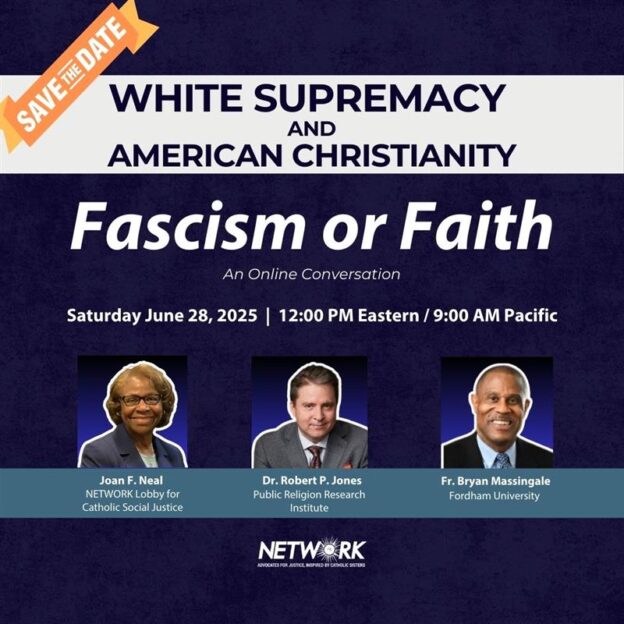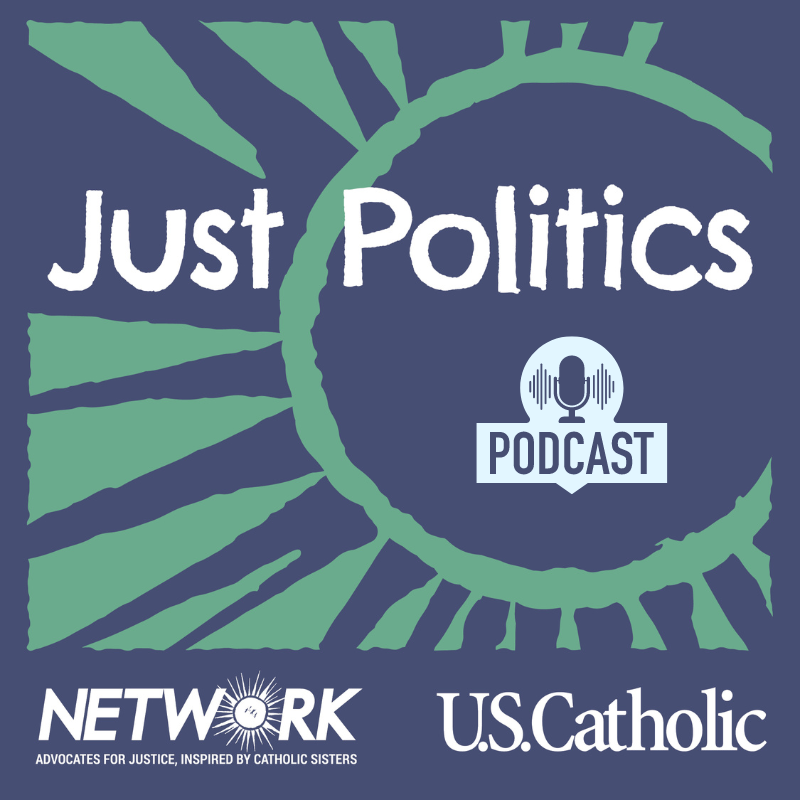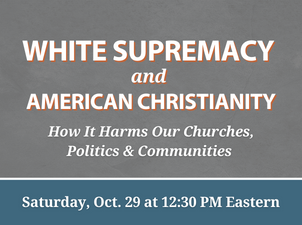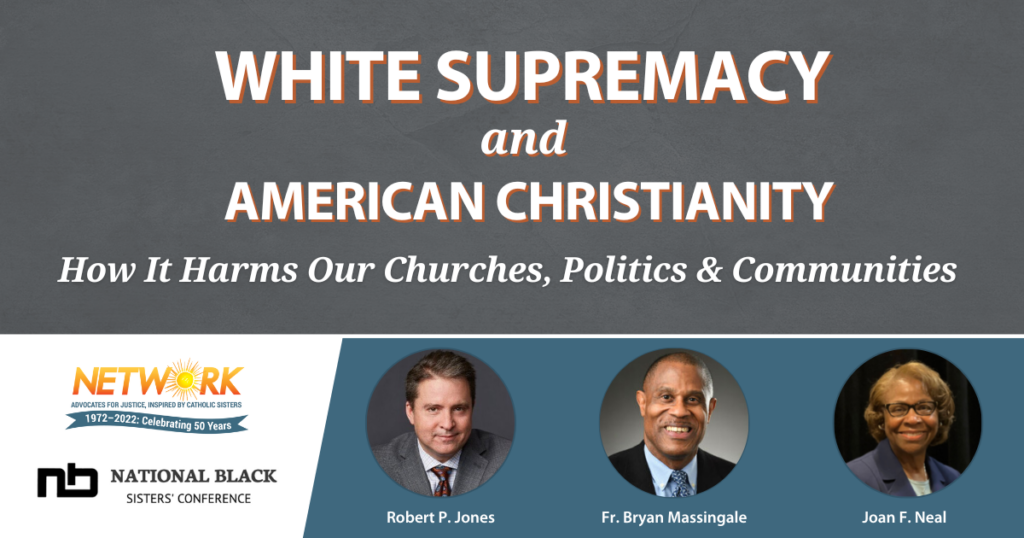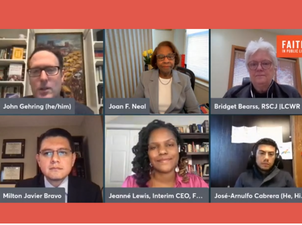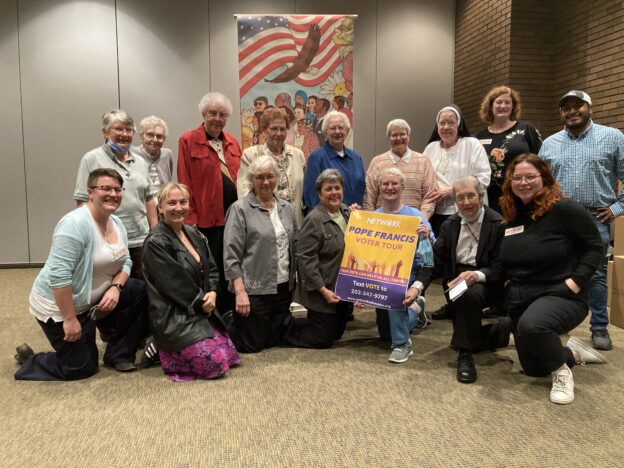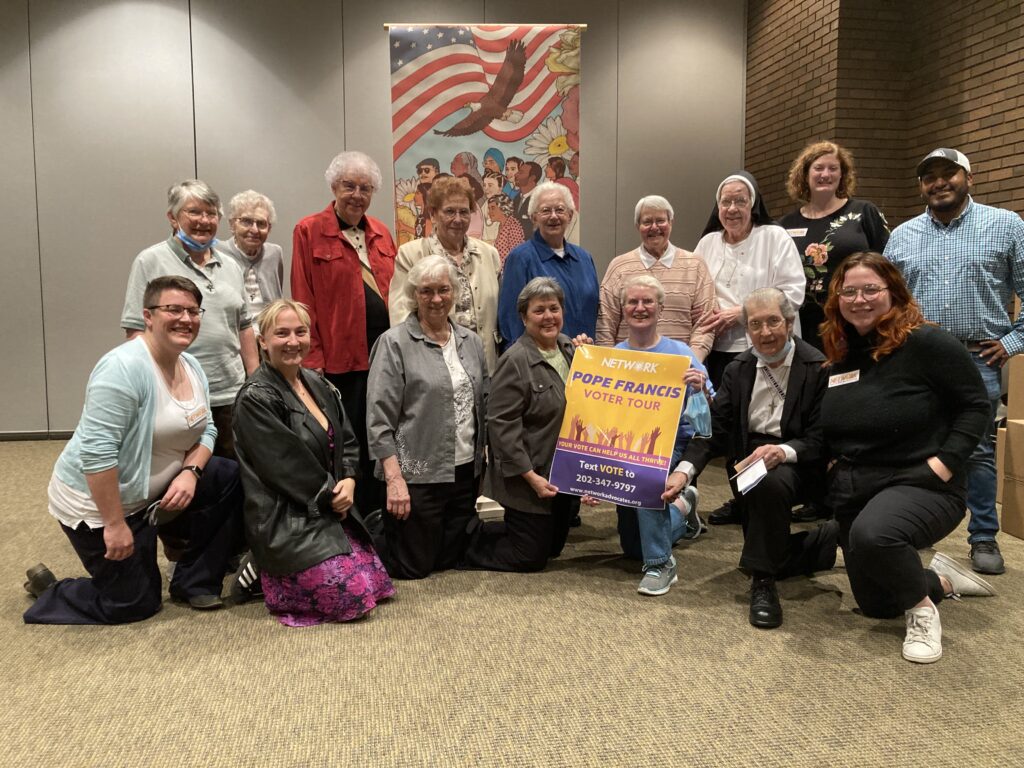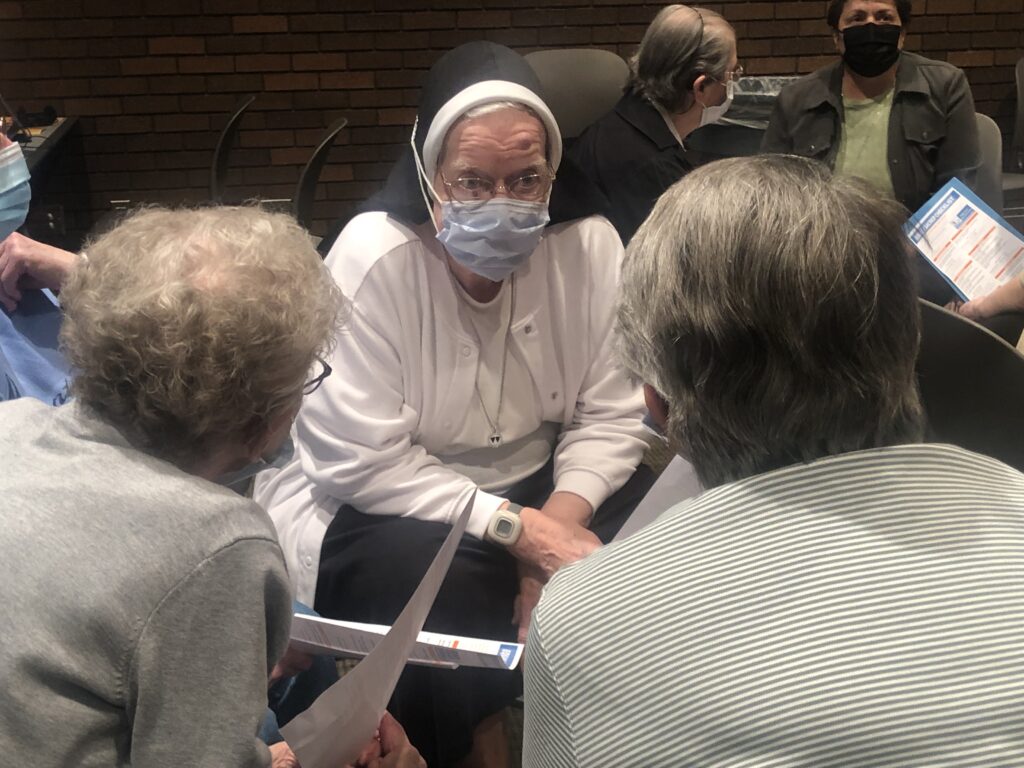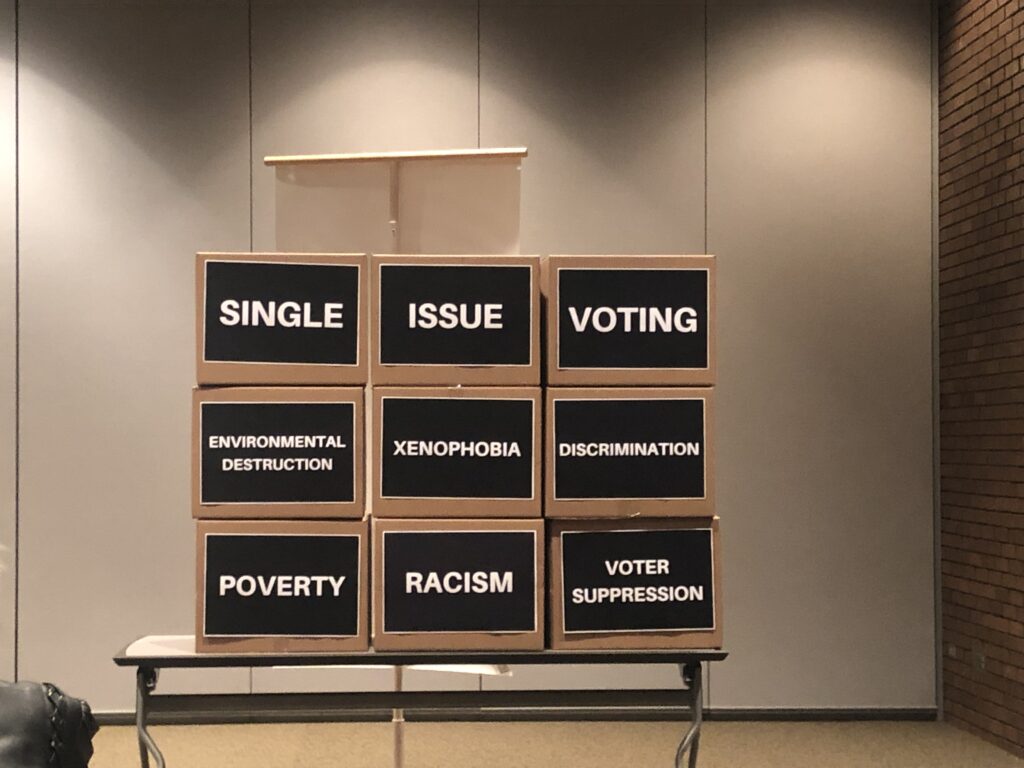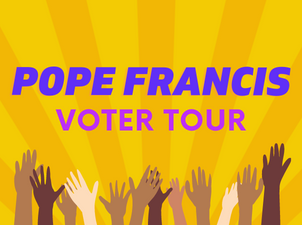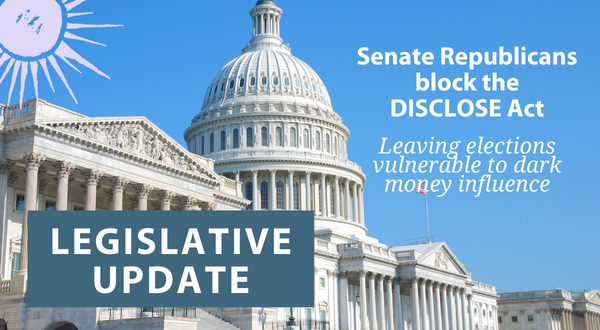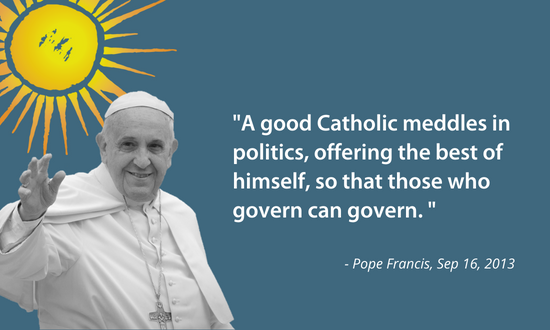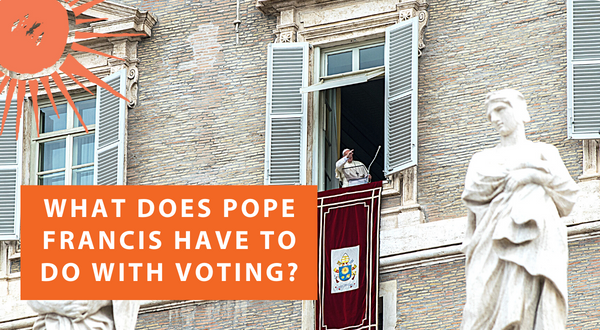White Supremacy and American Christianity Series
Fascism or Faith
Watch Only: Joan, Dr. Jones, and Fr. Massingale
Watch Only: Joan's Conversation with Amanda Tyler
What is White Christian Nationalism?
NETWORK partner, the Baptist Joint Committee for Religious Liberty (BJC), released a joint project with the Freedom From Religion Foundation (FFRF) detailing Christian nationalism’s prominence in the January 6 insurrection. In it, Amanda Taylor of BJC shares, “Christian nationalism is a political ideology and cultural framework that seeks to merge American and Christian identities, distorting both the Christian faith and America’s constitutional democracy. Christian nationalism relies on the mythological founding of the United States as a ‘Christian nation,’ singled out for God’s providence in order to fulfill God’s purposes on earth. Christian nationalism demands a privileged place for Christianity in public life, buttressed by the active support of government at all levels.
Christian nationalism is not Christianity, though it is not accurate to say that Christian nationalism has nothing to do with Christianity. Christian nationalism relies on Christian imagery and language.”
Watch Previous White Supremacy and American Christianity Conversations
White Supremacy and American Christianity, Part 5
We Choose Freedom
White Supremacy and American Christianity, Part 4
With previous discussion laying out the roots, influences, and threats to democracy posed by white supremacy in our churches and politics, Fr. Bryan N. Massingale, Dr. Robert P. Jones, and NETWORK’s Joan F. Neal looked to the future and explored how we the U.S. can move beyond Christian nationalism. And young adult justice-seekers shared how they connect their work for democracy to their faith. White Supremacy and American Christianity: Moving Towards Beloved Community was a special conversation, focused on the future and the possibility of a vibrant, multi-faith, multi-racial democracy where every person can thrive, without exception.
White Supremacy and American Christianity, Part 3
In October 2023, ethics professor Fr. Bryan N. Massingale, author Robert P. Jones, and NETWORK’s Joan F. Neal gathered for White Supremacy and American Christianity: A Consistent Ethic of Hate Threatens Our Democracy. The country was on the precipice of a budget crisis. House extremists didn’t want to negotiate, they wanted a government shutdown–they were a threat to our democracy. Their actions, rooted in white supremacy and Christian nationalism, were positioned to harm those they view as other: Black and Brown citizens and non-English speaking Black and Brown immigrants. Instead of building a pluralistic democracy, they aimed to diminish the progress and presence of non-white people in our country and throw our government into chaos.
White Supremacy and American Christianity, Part 2
In October 2022, ethics professor Fr. Bryan N. Massingale and author Robert P. Jones participated in an enlightening conversation ahead of this year’s midterm for an exploration on the influence of White Supremacy in American Christianity on our politics. The conversation was moderated by NETWORK’s Joan F. Neal.
White Supremacy and American Christianity, Part 1
In April 2022, NETWORK engaged experts working at the intersection of racism, nationalism, and Christianity for a conversation on the poisonous effect that White Supremacy has on American Christianity. Fr. Bryan N. Massingale, Dr. Robert P. Jones, and NETWORK’s Deputy Executive Director and Chief Equity Officer Joan F. Neal were joined by Georgetown University’s Dr. Marcia Chatelain.
White Supremacy and American Christianity Guest Speakers
Darcy Hirsh is the Senior Director of Policy & Advocacy at Interfaith Alliance, (Part 3) where she leads the organization’s policy work at the local, state, and federal levels, as well as its critical advocacy in the courts.
Dr. Robert P. Jones is the President and Founder of PRRI, and author of White Too Long: The Legacy of White Supremacy in American Christianity. Robert P. Jones speaks and writes regularly on politics, culture, and religion in national media outlets including CNN, NPR, The New York Times, The Washington Post, and others. Dr. Robert Jones’s latest book is a New York Times best-seller. You can buy it here: The Hidden Roots of White Supremacy and the Path to a Shared American Future and follow Dr. Jones through his newsletter at https://www.whitetoolong.net/.
Fr. Bryan Massingale is the James and Nancy Buckman Professor of Theological and Social Ethics, as well as the Senior Ethics Fellow in Fordham’s Center for Ethics Education and author of Racial Justice and the Catholic Church. Fr. Massingale is a noted authority on social and racial justice issues, particularly in Catholic spaces. Read Fr. Massingale’s Op-Ed in National Catholic Reporter, “As the election cycle cranks up, Christians need to call out white Christian nationalism” and his keynote address at the 2022 Outreach Conference: “Intersectionality and LGBTQ Ministry”
Professor Marcia Chatelain, Ph.D., is the winner of the 2021 Pulitzer Prize in History (Part 1) her book Franchise: The Golden Arches in Black America. She is a professor of history and African American studies at Georgetown University and the leading organizer behind the #FergusonSyllabus, an online educational resource that has shaped educational conversations about racism and police brutality since 2014.







